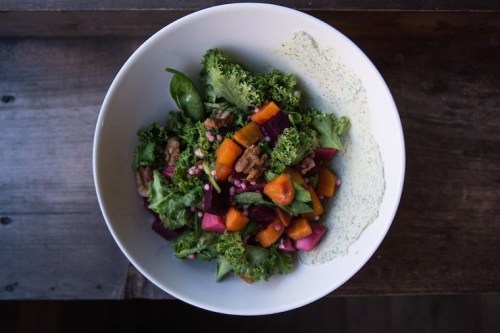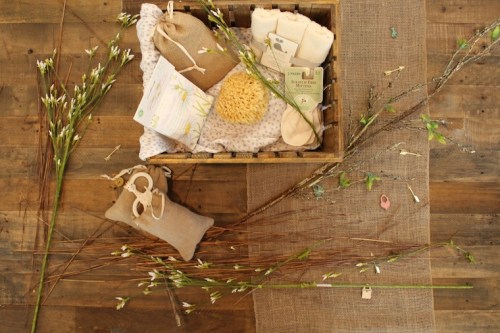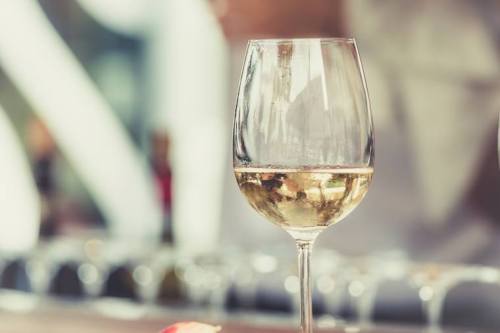How to have a dry January (and why it’s totally worth it)
Kristin Dahl of Dahl House Nutrition shares her top tips for having a successful dry January.

Juice fasting and celeb-style meal delivery aren’t the only ways to give your body a post-holiday reset. The simple act of taking a break from alcohol for a few weeks is enough to give you some major health benefits, and—bonus!—it doesn’t cost a thing.
In a recent experiment by The New Scientist, participants who abstained from booze for just 35 days saw a significant decrease in blood sugar and liver fat. That alone is a pretty good incentive to skip a few happy hours, but according to holistic nutritionist Kristin Dahl, there are lots of other reasons why you might want to start 2017 on a dry note.
“Passing on alcohol for a month has a profound effect on your overall wellbeing,” says the Dahl House Nutrition founder. “Your moods stabilize, you have more energy, and your mindset is more optimistic. This can offer more clarity and motivation to work on your longer-term life goals.” And what better time to get that boost than January, when we’re all in resolution mode?
Ready to start swapping your merlot for matcha? Keep reading for Kristin Dahl’s tips on how to have a successful “dry January.”

Feed your body the good stuff
“Just like breaking any habit, giving up alcohol for a month takes willpower, but we can make it easier by replenishing our system with nourishing foods,” says Dahl.
She recommends loading up on whole, plant-based, protein-rich meals with plenty of water, all of which will help balance your blood sugar. And give a little extra love to your gut. “Alcohol causes an imbalance of bacteria in the digestive tract,” Dahl notes. “Restore your microbiome with a variety of foods: lots of dark leafy greens; a variety of vegetables and fruits; healthy fats like nuts, seeds, and avocado; whole grains like quinoa, brown rice, and buckwheat; and probiotic-rich foods like kimchi, sauerkraut, organic miso, tempeh, coconut yogurt, and kefir.”
Frequent drinkers may feel under the weather for the first few days; Dahl says this is a sign your body’s detoxing. “Support your immunity with herbal teas, ginger, and turmeric, and engage in activities that increase sweating to help flush toxins from your system,” she says. (Infrared sauna sesh, anyone?)

Overhaul your social calendar
It’ll be a lot harder to resist a night out with your friends if you don’t have anything else lined up. That’s why Dahl recommends filling your schedule with things that’ll give you a natural buzz.
“Working out is always a great option, as it stimulates the production of feel-good hormones like serotonin,” she says. “This is also a perfect time to try something new. Take a cooking class, check out a new fitness trend, begin hosting weekly dinner parties at your place, or sign up for a wellness retreat with all the extra money you’ll be saving.”
It’s also easier to commit to a sober stint if your friends are along for the ride—good thing sober socializing is trending in a big way this year. “Commit to joining a cleanse program or create a forum to connect with others that are taking their health to the next-level,” Dahl suggests. (These booze-free social events are awesome options, and Dahl has her own 21-day group cleanse starting on January 5.) “Creating a support system is key—engage your friends, family, and co-workers. Group efforts create a collective energy that makes it easy to stay on track.”
And hey, if you’re really insistent on keeping up with your usual social routine, there are ways to navigate sober dating like a boss.

Amp up your self-care
If cocktails are a key part of your stress relief arsenal, this step will be extra important. “Stress and anxiety can be more harmful than anything you put in your body,” proclaims Dahl. “Counter stress by setting aside time every day to unplug and connect to nature, and create nurturing daily rituals that support health and healing.”
Some of her favorite self-care strategies include self-massage, journaling, long baths, infrared sauna sessions, and acupuncture. Meditation is another must, Dahl says. “Meditation not only creates a stronger mind-body connection but also calms your nervous system and helps to relieve the daily anxiety that [may have] been driving you to drink.”

Get some sleep
If you always feel tired no matter how much sleep you get, your nightly glass of red could be to blame. Studies have shown that drinking right before bed can lead to decreased sleep quality.
So use your dry January to catch up on all of the deep shut-eye you may be missing out on—Dahl recommends turning in at the same time every night, unplugging from electronics at least an hour before bed, writing a gratitude list, and drinking soothing chamomile tea. (Consider taking these sleep-supportive micro-steps, if your day is too jam-packed to consider becoming an early-to-bed person.)
“Winter is the perfect time to hibernate a bit and restore,” she says. “The goal is to wake up feeling refreshed and energized before your alarm clock goes off.”

Reflect on your habits
It’s easier to rethink your relationship with booze when you have some distance from it. Dahl recommends taking some time to really look at why you drink and whether it’s really serving you.
“If you’re drinking to the point of being drunk, you are usually drinking to drown out something that feels uncomfortable to confront or because you feel boxed in by your life circumstances,” she says. “Maybe you’re working too much or pushing really hard to feel a sense of achievement and success, and the overwhelm you experience leaves you feeling constricted. In turn, you crave foods with expansive properties, like sugar and alcohol, to give you a feeling of openness.”
Dahl has firsthand experience with this—after losing her mother to a drunk driver as an infant, she says, “I spent much of my younger years downing booze like everyone else to drown my sorrows, until one day I realized that I was just using it as a crutch to escape the deep ache in my heart. Facing my demons opened me up to a path of self-discovery and profound healing.”

Get help if you need it
If you find yourself struggling to get through the month without a drink, know that you’re not alone and help is available.
“Emotions may come up that you don’t know what to do with,” says Dahl. “This is incredibly common when detoxing from any addictive substance. Get your thoughts on paper and reach out for support if you need it. A therapist, spiritual advisor, or mentor can be incredibly helpful at this time.” (She Recovers is a great resource.)

Reintroduce alcohol mindfully
Once February 1 hits, you may want to reunite with your favorite cocktail—but Dahl warns to take it slow. “You’ll find after not drinking for a month that your tolerance has gone way down,” she says. “The idea is to create a hybrid of your previous habits with what you now know. Enjoy a celebratory glass of fine wine or spirits instead of drinking to the point of unconsciousness.”
She also recommends setting some new ground rules for your relationship with alcohol and envisioning what your future together will look like. “Get started by creating new goals for yourself and begin to visualize what you truly want to draw into your life,” she says. “Think in the long term—how can you live from a place where you begin to look well into the future, instead of just at your immediate wants and needs? This is crucial for continuous vitality.”
There are more ways to heal your body and your spirit in the new year: You could always try stocking up on crystals, consulting a medium, or visiting a shaman.
Sign Up for Our Daily Newsletter
Get all the latest in wellness, trends, food, fitness, beauty, and more delivered right to your inbox.
Got it, you've been added to our email list.










